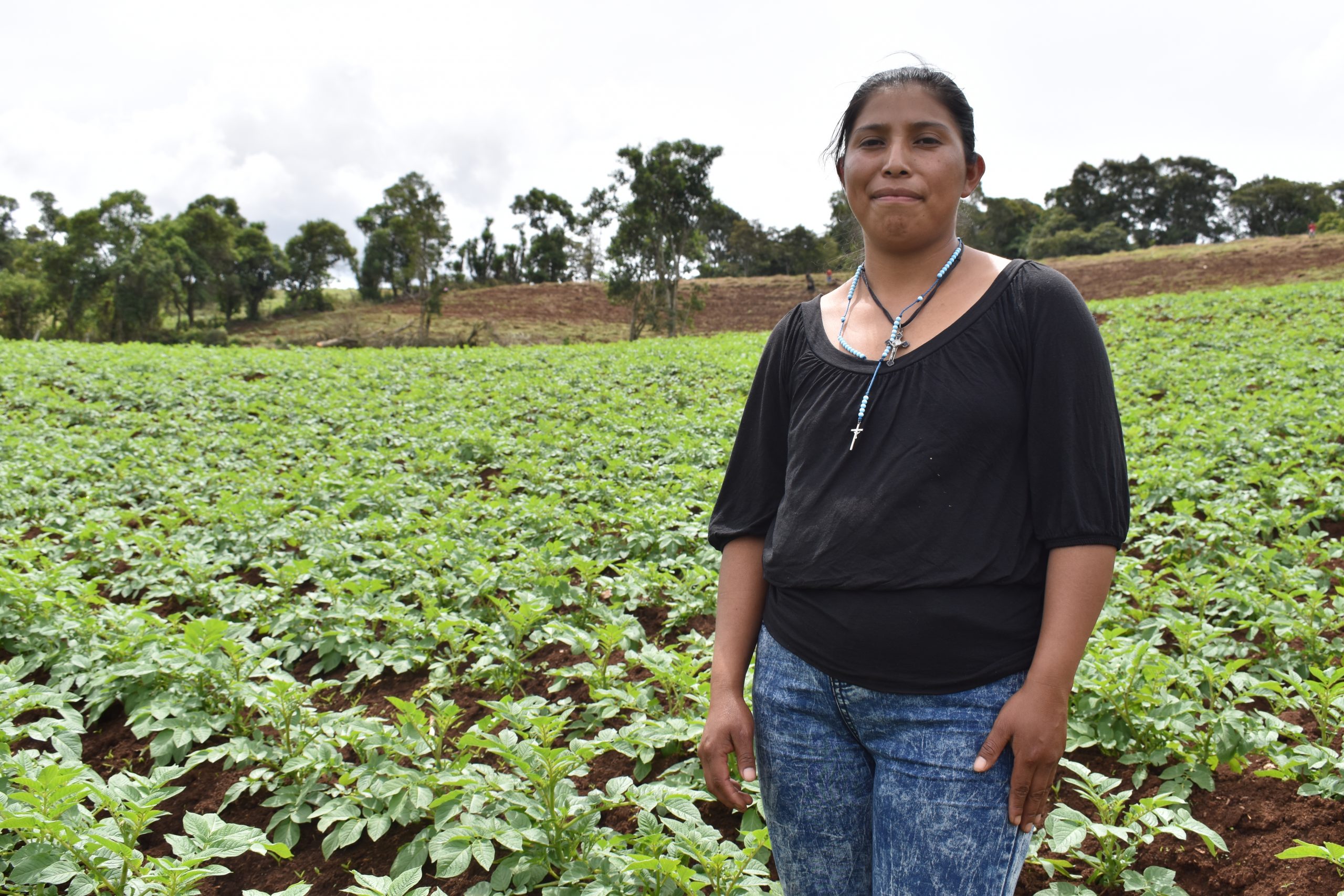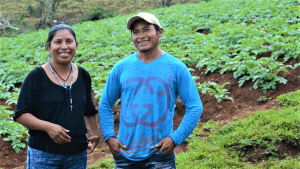
Brenda Aracely Dominguez lives in the highlands of Intibucá, Honduras, on land where her family has grown potatoes for generations. Until recently, Brenda was one of thousands of female entrepreneurs from the Lenca indigenous group without access to financing.
That changed after the USAID Transforming Market Systems Activity in Honduras, implemented by ACDI/VOCA, formed alliances with private sector agricultural processing companies, such as JJ Agro, one of the largest potato producers and traders in Honduras. Through these alliances, the Activity validated business models that supported the financial inclusion of small producers in their supply chains. With a more inclusive business model, JJ Agro freed up its own funds, reducing its financial burden. This allowed JJ Agro to better respond to market demands, while also increasing the footprint of smallholder farmers and making it easier to expand into new production areas.
Integrating Potato Producers into Supply Chain
In October 2020, the Activity facilitated an agreement between JJ Agro and Comlesul, a savings and credit cooperative, to improve the financial inclusion of the first group of 29 potato producers who were integrated into the supply chain. This group included Brenda. JJ Agro hired a specialist in financial services to help producers like Brenda comply with Comlesul’s legal requirements, including obtaining a tax registration number and receiving clearance from the national risk registry. The financial specialist negotiated terms and conditions with the cooperative, and a triangulation formed, in which JJ Agro withheld payments at harvest time to comply with scheduled payments to the cooperative. At the same time, JJ Agro established an agreement with AgroIris, an agricultural input supplier, to supply a package of inputs on credit to farmers who were also paid at harvest time.

In addition, JJ Agro hired a Lenca technician who visited each producer weekly. This technician supervised the fixed price purchase contract with JJ Agro by ensuring quality parameters and providing technical assistance and technological innovation.
In nine months, JJ Agro had tripled its number of suppliers from 29 to 92. The company also doubled financing to its supply chain from $27,200 in 2019 to $53,000 in 2021. JJ Agro helped farmers like Brenda negotiate better rates and conditions, evolving from a solidarity group guarantee to not requiring any type of guarantee other than the purchase contract and bringing yet another financial entity, Cooperativa Usula, to the area. Currently, zero farmers are behind in their repayments.
Increasing Incomes Through Financing and Technical Assistance
Brenda received a loan of $800 to plant roughly half a hectare of potatoes. She also received technical assistance to plant two new certified varieties, Fabula and Sagita, which allowed her to earn $13 more per 100-pound bag compared to conventional varieties. This additional income allowed Brenda to contribute to her family and the care of her son.
The Activity continues to help companies like JJ Agro innovate and scale up their supply chain models while increasing the inclusion of small producers like Brenda. Their inclusion in the formal economy can generate new jobs and reduce illegal migration out of the country. Brenda received technical assistance, access to the market, and financing for the first time. Meanwhile, having new and better suppliers allowed JJ Agro to diversify its capital and invest in a new hydroponic strawberry initiative.
Learn more about our work in Honduras.
Learn more about the USAID Transforming Market Systems Activity in Honduras.







